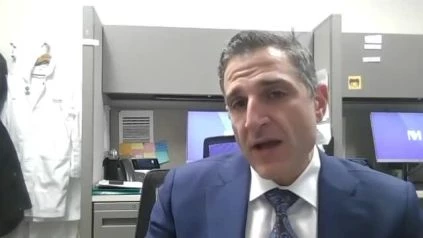Ashley E Ross, MD, Ph.D. From Northwestern University Feinberg School of Medicine speaks about Practical Applications of Novel Imaging and Genomics Approaches in the Management of Clinically Localized Prostate Cancer.
Link to Slides –
https://meetinglibrary.asco.org/record/193305/slide
The 2021 American Society of Clinical Oncology (ASCO) Symposium on Genitourinary (GU) Cancers included a presentation by Dr. Ashley Ross exploring the use of genomics in post-prostatectomy patients to guide treatment decisions. Dr. Ross states that the clinical usefulness of the Decipher® genomic classifier recently reported in European Urology was evaluated in a recent systematic review.1 This genomic classifier tests 22 genes representing various oncological pathways, is heavily validated and is independently predictive of oncological outcomes. There were 42 trials and 30.407 patients included in this systematic study. In 32 studies (n=12,600), all research endpoints (adverse pathology, biochemical failure, metastasis, and cancer-specific and overall survival) were independently prognosticated by the genomic classifier and 24 studies enhanced discrimination over quality of care (n=8,543).
Dr. Ross states that we now have evidence from three clinical trials that indicate that adjuvant radiotherapy is preferable to early salvage radiotherapy: RADICALS-RT, GETUG-AFU-17,2 and RAVES.3 A prospectively planned systematic study and meta-analysis of aggregate data reported in The Lancet4, a meta-analysis of these three trials, was complementary to these three trials. Between November 2007 and December 2016, 2,153 patients were recruited, with a median follow-up ranging from 60 months to 78 months, with a cumulative follow-up of 132 months. 1,075 patients were randomly allocated to receive adjuvant radiotherapy and 1,078 to receive early salvage radiotherapy, 421 (39.1%) of whom had started treatment at the time of the study. The meta-analysis found no evidence on the basis of 270 events that event-free survival with adjuvant radiotherapy was increased relative to early salvage radiotherapy (hazard ratio [HR] 0.95, 95% confidence interval [CI] 0.75-1.21), with just 1 percentage point (95% CI -2 to 3) improvement in 5-year event-free survival (89 percent vs. 88 percent ).

